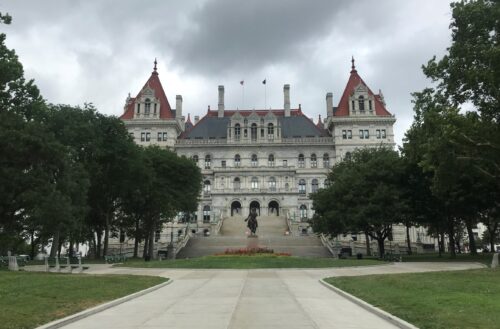
Kim Sweet, Executive Director of Advocates for Children of New York, issued the following statement in response to the President’s Executive Order seeking to dismantle the U.S. Department of Education.

AFC works to change education policy so that the public school system serves all children effectively. We publish policy reports and data analyses, testify at the City and State levels, speak out in the press to bring attention to the challenges facing the students and families we serve, and join with other advocates, parents, youth, and educators to call for change.
176 Results Found

Kim Sweet, Executive Director of Advocates for Children of New York, issued the following statement in response to the President’s Executive Order seeking to dismantle the U.S. Department of Education.

Kim Sweet, Executive Director of Advocates for Children of New York, issued the following statement in response to the Foundation Aid proposals included in the New York State Senate’s and New York State Assembly’s Fiscal Year 2026 one-house budgets.

Kim Sweet, Executive Director of Advocates for Children of New York, issued the following statement in response to the release of Governor Hochul’s FY 2026 Executive Budget proposal.

In response to the release of Mayor Adams’ Preliminary Budget for Fiscal Year 2026, Kim Sweet, Executive Director of Advocates for Children of New York (AFC), issued the following statement.

Kim Sweet, Executive Director of Advocates for Children of New York (AFC), issued the following statement in response to Governor Hochul’s State of the State address.

Kim Sweet, Executive Director of Advocates for Children of New York (AFC), issued the following statement in response to the release of the Rockefeller Institute’s study on the Foundation Aid formula.

More than 146,000 New York City students—about one in every eight children enrolled in the public schools—experienced homelessness during the 2023–24 school year, the ninth consecutive year in which more than 100,000 students were identified as homeless.

This brief summarizes data on a subset of the more than 119,000 New York City students who were identified as homeless during the 2022–23 school year.

Kim Sweet, Executive Director of Advocates for Children of New York (AFC), issued the following statement in response to the announcement of Melissa Aviles-Ramos as the next schools Chancellor

Kim Sweet, Executive Director of Advocates for Children of New York (AFC), issued the following statement in response to the release of the New York State English Language Arts test scores for New York City students